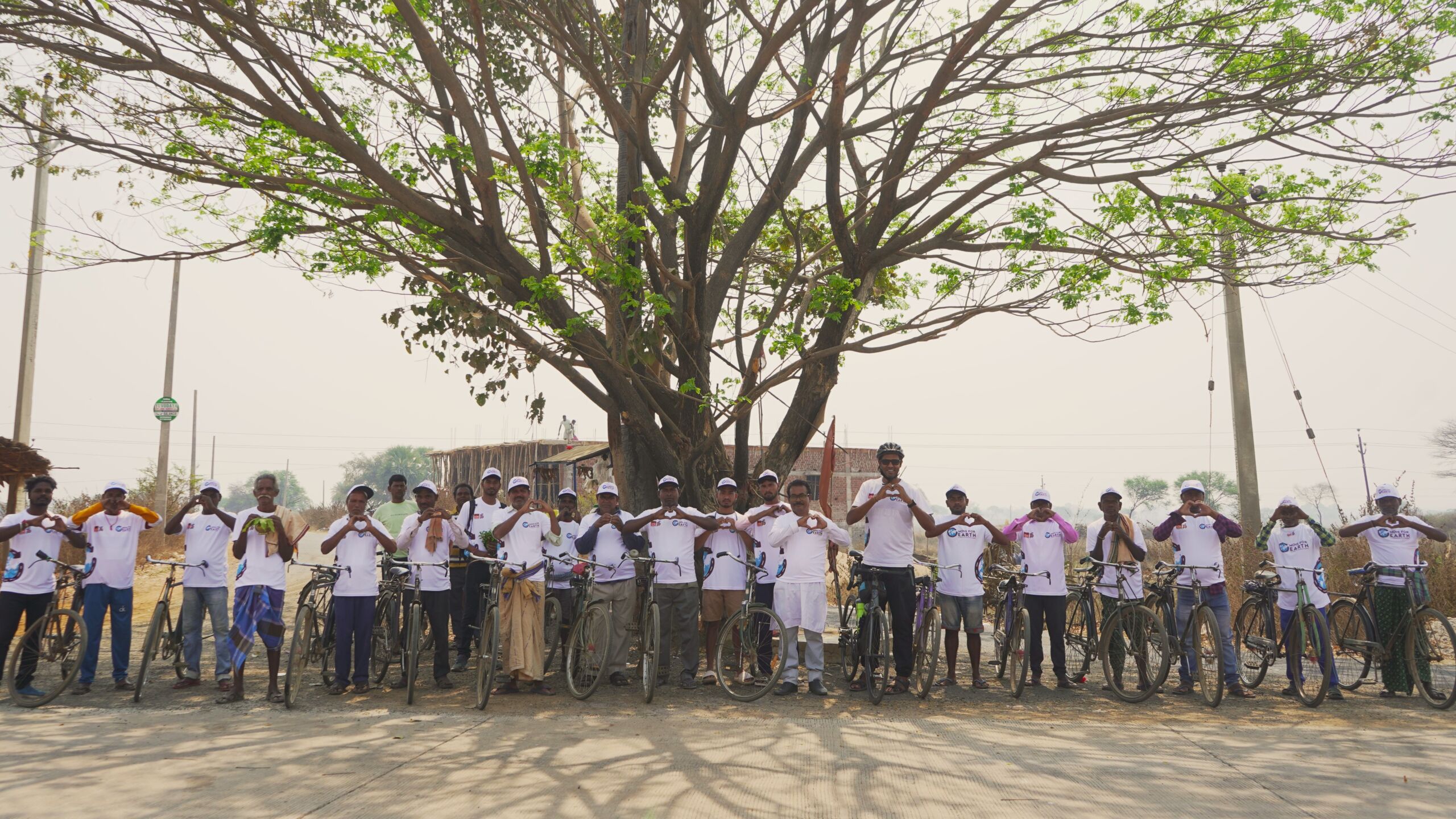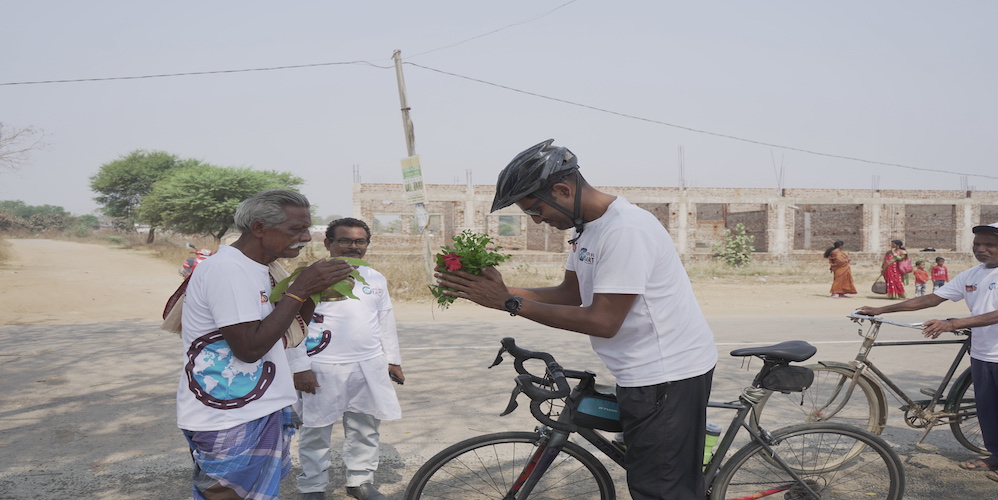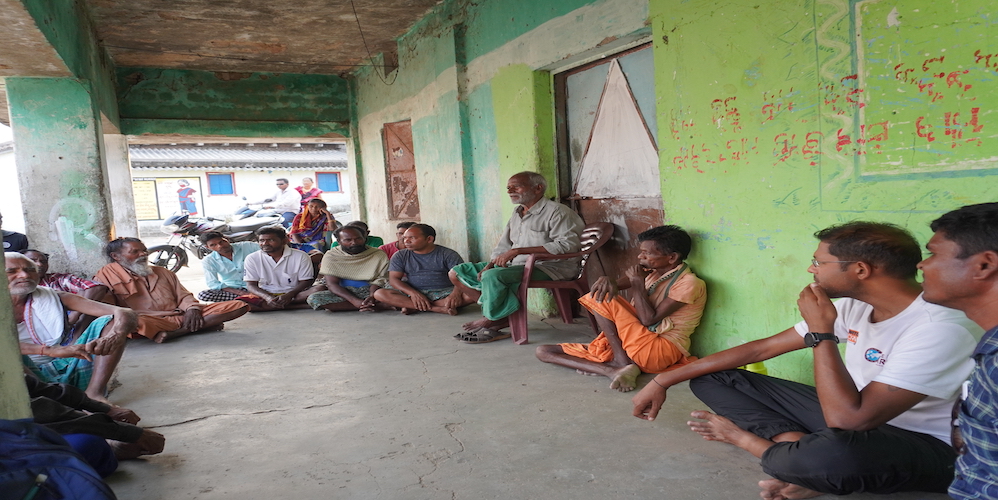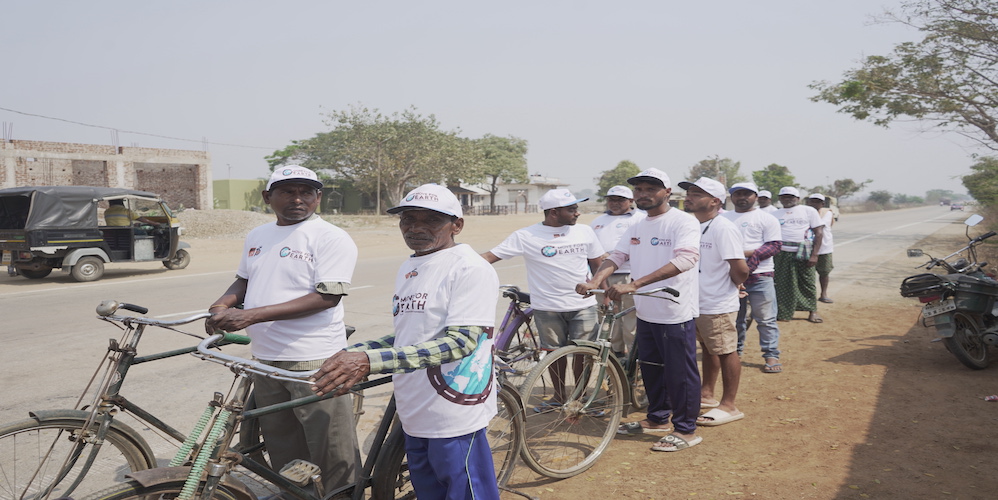
Odisha Day Five | Mar 3: Leaning Into The Power Of Collaboration
I spent most of my morning cycling to Sonepur. It was rejuvenating to be outdoors, especially cycling along the Mahanadi River. The town of Sonepur sits cosy between the Mahanadi and one of its tributaries. Here, I attended a farmer training program on promoting millets as a sustainable crop which was followed by a captivating folk drama on the impact of solar energy.
The highlight of my day came on my way from Sonepur to Balangir, where I made a pit stop at Tarbha village. Here, I met with farmers to talk about climate-smart agriculture. We were sitting out on the porch of a panchayat building and as we talked, people passing by were intrigued by what was happening and decided to join in on the conversation as well. I absolutely love when these events attract people organically! These informal conversations are so vital to our work at SwitchON, the programming we can offer, and the type of changes we’re advocating for through this Move for Earth movement. I learned that water is the primary concern for people here. In dry months, there’s not even enough water to bathe, let alone water the fields. Then there is the issue of bringing water to the fields and while 2-3 farmers have electrical pumps, most of them rely on diesel pumps. There are absolutely no solar pumps in the area. On top of this, even though millets don’t require much water input, a lot of the farmers have stopped growing it because there hasn’t been as much of a market for it in recent years but are aware of the environmental and health benefits of it. This reminded me of the day’s earlier event when farmers attended the training on millet promotion and I thought about how we can host similar events in various regions of Odisha where millet farming has declined due to poor market conditions. This is even more important because the farmers expressed that they would like to go back to growing millet if they had access to seeds and other tools and resources.
The farmers in Tarbha told me what the community’s priorities are — just like the other communities I have met so far on my journey. Local communities know what their needs are and it is important for us to respond in a relevant manner. How do we, as an organisation, as individuals, as a society, respond to such issues in a helpful manner? How do we respect a community’s needs while ensuring appropriate climate action is taken? A big part of our Move for Earth movement is to learn about these community needs and work collaboratively on solutions. Throughout this ride, we have been collecting similar information from communities across Odisha and this will help us to create participatory community-based programming that meets a region and community’s short-term needs while building resilience in the long-term. Tomorrow, we are hosting the Farmer’s Citizen’s Jury in Balangir and I am sure we are going to have many more important conversations about climate action and solutions, and identify ways to come together to address this immediate climate crisis.





